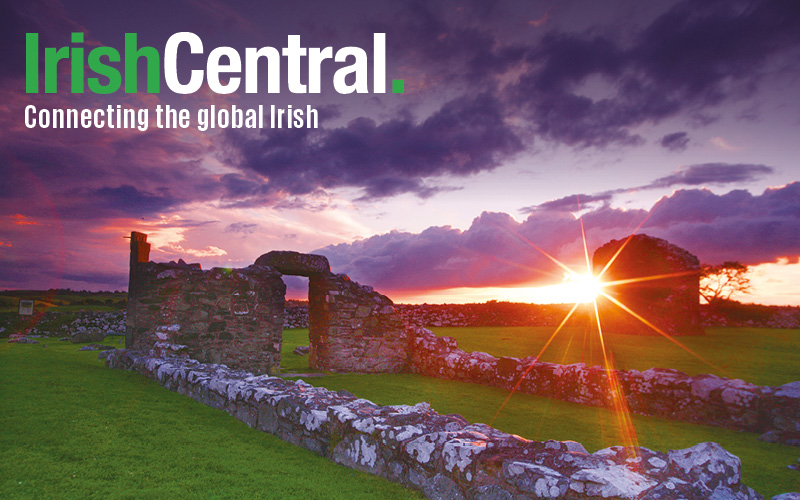The Global Project Against Hate and Extremism (GPAHE) released a report profiling hateful and extremist groups in Ireland.
The Irish Far-right Hate and Extremist Groups report details 12 far-right groups in Ireland that the GPAHE identifies as embracing beliefs and activities that demean, harass, and inspire violence against people based on their identity traits including race, religion, ethnicity, language, national or social origin, caste, gender, sexual orientation, or gender identity.
According to the report, Ireland’s far-right scene has grown in recent years in reaction to progress for LGBTQ+ equality, increased access to abortion, and the fabricated threat of the anti-immigrant and white-supremacist “Great Replacement" lie, even though immigration to Ireland has declined since 2018.
Since the start of the pandemic in March 2020, other movements have arisen, GPAHE says, harnessing rage over pandemic health measures, such as anti-lockdown protests, and spreading covid-related conspiracy theories, often overlapping with other far-right extremist ideologies.
Heidi Beirich, the co-founder of GPAHE, said: “Similar to the US and other parts of the world, there’s a disturbing trend in Ireland where white nationalist, anti-LGBTQ+, anti-immigrant, and anti-lockdown groups seem to be coming together and echoing each other’s hateful rhetoric.
“One of the scariest things about this coalescence is that they are able to spread their extremist messages wider and recruit more people into their movements.
“Unfortunately, we expect the far-right in Ireland to continue to grow.”
GPAHE says that of the 12 groups identified in its report (with overlap because many are identified as more than one type), eight are categorized as anti-immigrant, four as white nationalist, and eight as anti-LGBTQ+ or specifically anti-trans. Five are also identified as spreading conspiracy theories.
The report identifies two extremist groups as registered political parties in Ireland. The National Party (anti-Immigrant, anti-LGBTQ+, white nationalist) is the largest far-right political party in Ireland. The Irish Freedom Party (anti-immigrant, anti-LGBTQ+, conspiracy) is also a registered political party. The report also includes Anti-Corruption Ireland (white nationalist, anti-immigrant, and conspiracy) which is an unregistered political party.
The entire list includes the following groups:
- Anti-Corruption Ireland (white nationalist, anti-immigrant, conspiracy)
- House the Irish First (anti-immigrant)
- Iona Institute (anti-LGBTQ+)
- Irish Council for Human Rights (anti-immigrant, anti-LGBTQ+, conspiracy)
- Irish Freedom Party (anti-immigrant, anti-LGBTQ+, conspiracy)
- LGB Alliance (anti-transgender, other)
- National Party (anti-immigrant, anti-LGBTQ+, white nationalist)
- Official Proud Boys Ireland (white nationalist, anti-immigrant, anti-LGBTQ+, anti-woman)
- Rise Up Éireann/Rise Up Ireland (conspiracy)
- Síol na hEireann/Seed of Ireland (white nationalist, anti-immigrant, anti-LGBTQ+)
- Society of St. Pius X Resistance (conspiracy, antisemitic)
- Yellow Vest Ireland (anti-immigrant, anti-LGBTQ+, conspiracy)
The report shows communication and coordination between some of the groups. For instance, Gemma O’Doherty and John Waters, leaders of Anti-Corruption Ireland, have attended events put on by the Irish Council for Human Rights, an anti-immigrant and anti-LGBTQ+ group.
Another example is, The Irish Freedom Party gained exposure to a wider audience after aligning with the anti-lockdown Yellow Vests Ireland movement.
The report shows that some of Ireland’s far-right groups are influenced by American far-right extremists and are actively engaged with other extremist groups in Europe.
Irish Far-right Hate and Extremist Groups is one of the first country reports in a series that GPAHE will release throughout 2022 and 2023, including reports covering far-right movements in Australia, Italy, and France to be released later this year.
Wendy Via, GPAHE co-founder and president, said: “Far-right extremist movements inspire terrorism, mass killings, and rights-restricting policies around the world, and the various movements are increasingly interconnected.
“It’s critical that people, locally and globally, understand the far-right extremist landscape, how it operates, and how the dots are connected within countries and transnationally in order to counter the threats from these groups. Community safety and democracies are at risk. We hope these reports will help advocates do that.”




Comments